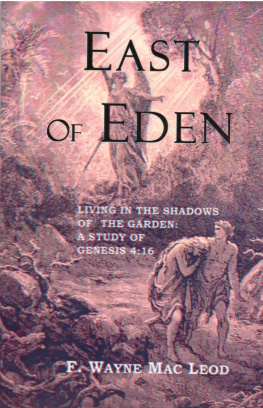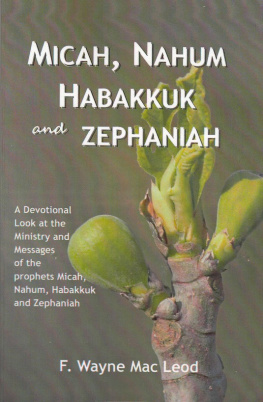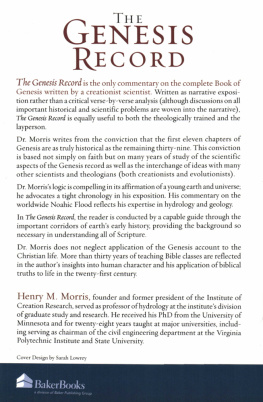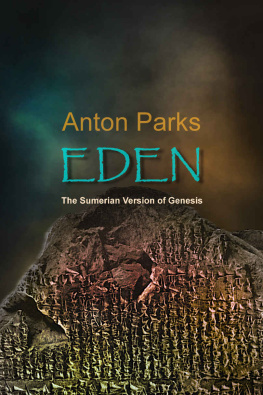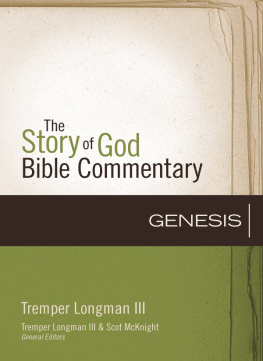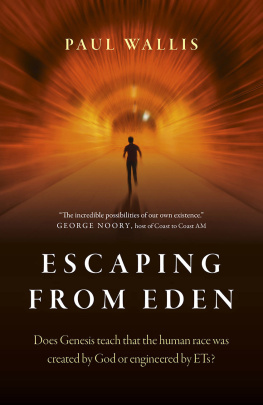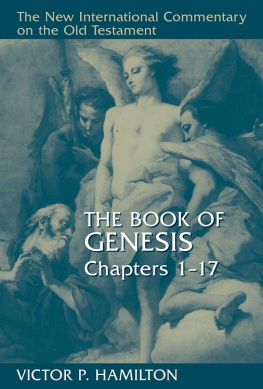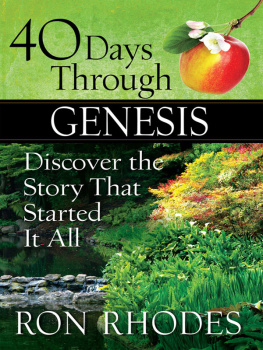East of Eden
Living in the Shadow ofthe Garden:
A Study of Genesis4:16
F. Wayne Mac Leod
Light To My Path BookDistribution
Smashwords Edition
Copyright 2014 by F.Wayne Mac Leod
The Holy Bible, EnglishStandard Version (ESV) Copyright 2001 by Crossway, a publishingministry of Good News Publishers. All rights reserved. ESV TextEdition: 2007
This ebook is licensedfor your personal enjoyment only. This ebook may not be re-sold orgiven away to other people. If you would like to share this bookwith another person, please purchase an additional copy for eachrecipient. If you're reading this book and did not purchase it, orit was not purchased for your use only, then please return to yourfavorite ebook retailer and purchase your own copy. Thank you forrespecting the hard work of this author.
Special thanks to theproof readers: Diane Mac Leod, Pat Schmidt
Table ofContents
Preface
This is a simplestudy of Genesis 4:16. When the Lord first put a burden on my heartto write on this passage I wasnt sure what I could find in it. AsI took the time to reflect however, the Lord showed me its richnessand application to my life.
In many waysCains story in Genesis 4:16 is our story. It is the story of amans rebellion and his wandering from Gods presence. As we watchCain leave the presence of God we become aware of our owntemptations to wander from the fullness of Gods blessings. Werecognize just how much we, too, struggle with the attractions ofthis world and our own sinful heart.
This passage,however, is more than the story of Cains rebellion. It is arevelation of the heart of God for His people in general. We werecreated to live in Eden. While sin has stripped us of the privilegeof experiencing the fullness of the Garden, the Lord Jesus Christhas restored this privilege through His death and resurrection onour behalf. The blessings and privileges of Eden are againavailable to all who will receive the forgiveness offered throughthe Lord Jesus.
Will we open ourhearts to experience afresh what God intended for us from thebeginning of time? Will we enter the presence of God again andlearn to delight in Him and in the reality of who He is? I trustthat this brief study will enable each reader to examine his or herlife afresh. My prayer is that it would stimulate us to seek tolive again in the presence of God, in the place of His fullestblessing.
May God bless youas you embark on this study.
F. Wayne MacLeod
Chapter 1 Introduction andContext
Then Cain wentaway from the presence of the Lord and settled in the land of Nod,east of Eden (Genesis 4:16)
As we begin ourstudy of Genesis 4:16 it is of utmost importance that we give someconsideration to the context. There have been a number of importantevents leading up to this verse. Lets take a moment to examinethem.
Cain was the sonof Adam and Eve, the first people created by God. We know the storyof Adam and Eve and how, because of sin, they were driven from theGarden of Eden. Cain was born after Adam and Eve had been expelledfrom the Garden. He was their first child. At the time that sinentered the world, everything was relatively new. The world, inwhich Cain was born, though under the curse of God, had not seenthe full impact of rebellion against God that later generationswould see. There were no nations warring with other nations. Paganreligions did not yet exist. The earth had never seen murder, rapeor violence against another human being. As the first child of Adamand Eve, Cain would reveal to the world what the effects of sinwould be on the lives of their children. It would not take longbefore this sin would make itself known in Cains life. Little didAdam and Eve know just how devastating the effects of sin would beon their family.
Genesis 4 recountsthe story of the birth of Abel, the second child of Adam and Eve,and brother to Cain. As they grew up, the boys took on differentprofessions. Cain worked the ground and cultivated its fruits.Abel, on the other hand, kept sheep. Both of these were nobleprofessions.
The time came forthem to bring an offering to the Lord. Cain, as a tiller of thesoil, brought an offering of the fruit of the ground. Abel, as asheep farmer, brought a firstborn sheep from his flock. The boysbrought what they had as offerings to the Lord. Both of these werelegitimate offerings.
In Genesis 4:4-5,however, we read that God accepted the offering Abel brought, butrejected Cains offering. We are not told how these boys came tounderstand this, but it was clear that Cains offering had beenrejected. There are various opinions as to why Cains offering wasnot accepted by God. Some believe it was because of the type ofoffering he brought. Some believe that Cain should have brought ananimal sacrifice like his brother. The problem with thisinterpretation is that Gods people were also commanded to bringthe first of their crop harvest to the Lord (see Exodus 23:19;Leviticus 2:14; 23:10). The fruit of the land was an acceptableoffering to God. This leads us to believe that there was anotherreason for Gods rejection of Cains offering.
We may not have tolook far for the answer. Listen to Genesis 4:5:
5 But for Cainand his offering he had no regard. So Cain was angry and his facefell
Notice thatGenesis 4:5 tells us that God had no regard for both Cain and hisoffering. This tells us that the issue was not just with theoffering but also with Cain. When Cain saw that the Lord hadaccepted Abels offering but rejected his, he became very angryand his face fell. In fact, the matter became so serious that Godspoke to Cain about his attitude, warning him that sin wascrouching at his door with a desire for him. What does this tell usabout Cain?
Cains heart wasready soil for evil and sin to grow. The fact that he became veryangry with his brother shows us that the heart of Cain was notright with God or his brother. When his offering was rejected, thisshould have given him reason to seek the Lord about the reason forthe rejection. He could then have repented and been restored tofellowship. God warned Cain about sin crouching at his door. Godlooked into Cains heart and saw sin like a dam ready to burst. Godtold him that he needed to take control of the sin lest it breakout. Cain did not listen. In the very next verse, Cain rose up andkilled his brother in a jealous rage and then lied to God aboutwhat had happened.
What do theseevents reveal to us about the heart of Cain? He came to God with ajealous and bitter heart. It was a heart that was not in tune withGod or ready to listen to Him. It was a heart filled with sin andrebellion. It was a murderous heart. Could it be that God was notlooking at the offerings at all? Perhaps He was looking at thehearts of these two brothers who came to Him that day. He may haverejected Cain and his offering based on his sinful attitude,jealousy and rebellion.
Cains action thatday, despite the warning of God, brought the curse of God on hislife. In Genesis 4:11 we read that God cursed the ground hecultivated and told him that it would no longer yield abundantly.He also told him that he would be a fugitive and wanderer on theearth unable to settle down in any one place. While God removed Hisblessing from Cain, His grace was still evident. God put some kindof mark on him to protect him against anyone who would seek to killhim. Cain would leave the region of Eden, find a wife and have afamily. While God allowed him this privilege, he would live therest of his life separated from his family, and away from thepresence of the Lord (Genesis 4:16).
The context ofGenesis 4:16 reveals the effect of sin on the life of Cain. Hewrestled with thoughts of jealousy, rebellion and murder in hisheart. God warned him through the rejection of his offering. Godwarned him personally by telling him that sin was crouching at hisdoor, but Cain did not listen. Instead, he hardened his heart andsubmitted to his sinful impulses. The result was not only the deathof his brother, but also a deep separation between himself and hisGod.

